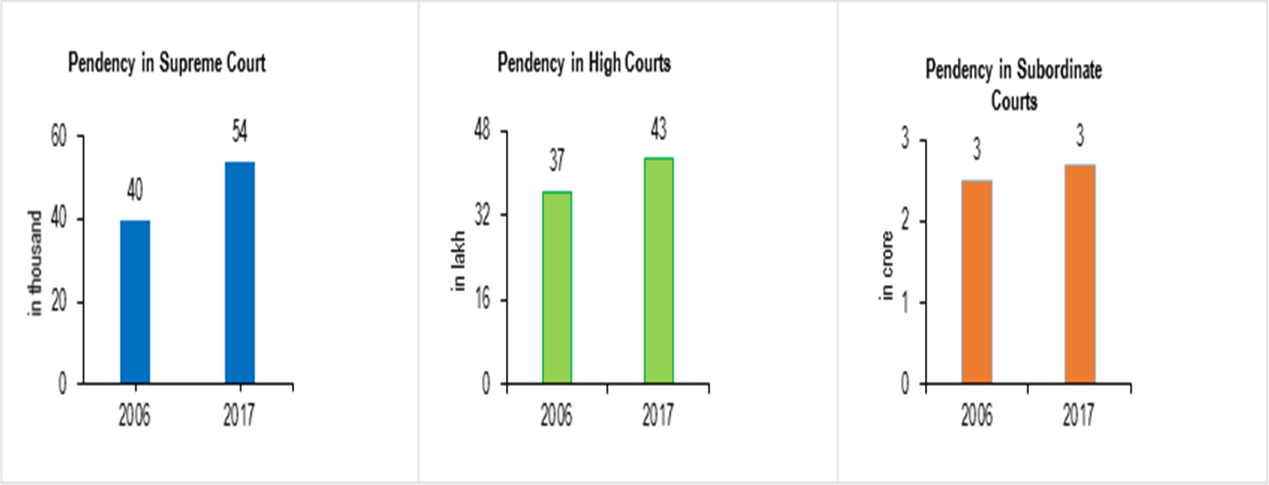Polity and Governance
Topics
All
Civil Services in India (26)
Ethics, Integrity and Aptitude
» Chapters from Book (11)
» Case Studies (8)
Solved Ethics Papers
» CSE - 2013 (18)
» CSE - 2014 (19)
» CSE - 2015 (17)
» CSE - 2016 (18)
» CSE - 2017 (19)
» CSE - 2018 (19)
» CSE - 2019 (19)
» CSE - 2020 (19)
» CSE - 2021 (19)
» CSE -2022 (17)
» CSE-2023 (17)
Essay and Answer Writing
» Quotes (34)
» Moral Stories (18)
» Anecdotes (11)
» Beautiful Poems (10)
» Chapters from Book (5)
» UPSC Essays (40)
» Model Essays (38)
» Research and Studies (4)
Economics (NCERT) Notes
» Class IX (14)
» Class X (16)
» Class XI (55)
» Class XII (53)
Economics Current (51)
International Affairs (20)
Polity and Governance (61)
Misc (77)
Select Topic »

Civil Services in India (26)
Ethics, Integrity and Aptitude (-)
» Chapters from Book (11)
» Case Studies (8)
Solved Ethics Papers (-)
» CSE - 2013 (18)
» CSE - 2014 (19)
» CSE - 2015 (17)
» CSE - 2016 (18)
» CSE - 2017 (19)
» CSE - 2018 (19)
» CSE - 2019 (19)
» CSE - 2020 (19)
» CSE - 2021 (19)
» CSE -2022 (17)
» CSE-2023 (17)
Essay and Answer Writing (-)
» Quotes (34)
» Moral Stories (18)
» Anecdotes (11)
» Beautiful Poems (10)
» Chapters from Book (5)
» UPSC Essays (40)
» Model Essays (38)
» Research and Studies (4)
Economics (NCERT) Notes (-)
» Class IX (14)
» Class X (16)
» Class XI (55)
» Class XII (53)
Economics Current (51)
International Affairs (20)
Polity and Governance (61)
Misc (77)

Chief Justice of India Writes to PM
Introduction
•Chief Justice of India Ranjan Gogoi has written to Prime Minister Narendra Modi three letters suggesting various steps to reduce the pendency in the Courts of India.
What is proposed by CJI
•Increase the strength of judges
•Raise the retirement age of high court judges to 65 years.
•Make tenure appointments of retired apex court judges and high court judges under Articles 128 and 224A of the Constitution respectively to clear backlog of cases pending for years.
Article 128: Attendance of retired Judges at sittings of the Supreme Court
•The Chief Justice of India may at any time, with the previous consent of the president, request any person who has held the office of a Judge of the Supreme Court or of the Federal Court or who has held the office of a Judge of a High Court and is duly qualified for appointment as a Judge of the Supreme Court to sit and act as a Judge of the Supreme Court, and every such person so requested shall, while so sitting and acting, be entitled to such allowances as the President may by order determine and have all the jurisdiction, powers and privileges of, but shall not otherwise be deemed to be, a Judge of that Court:
•Provided that nothing in this article shall be deemed to require any such person as aforesaid to sit and act as a Judge of that Court unless he consents so to do
Article224A : Appointment of additional and acting Judges
•The Chief Justice of a High Court for any State may at any time, with the previous consent of the President, request any person who has held the office of judge of that court or of any other High Court to sit and act as a judge of the High Court for that State, and every such person so requested shall, while so sitting and acting, be entitled to such allowances as the President may by order determine and have all the jurisdiction, powers and privileges of, but shall not otherwise be deemed to be a judge of that High Court.
•Provided that nothing in this Article shall be deemed to require any such person as aforesaid to sit and act as a judge of that High Court unless he consents so to do.
Pendency of cases in the judiciary (data updated upto April 2018)

Justification for increase in Judge’s strength
•There was a pendency of 58,669 cases in the Supreme court and the number was increasing due to filing of more fresh cases.
•Due to paucity of judges, the required number of Constitution benches to decide important cases involving questions of law were not being formed,
•About three decades ago, the judge strength of the SC was increased from 18 to 26, and then again after two decades in 2009, it was increased to 31.
•Increase in the judge-strength in the SC is necessary so that it can function more efficiently and effectively as it will go a long way to attain ultimate goal of rendering timely justice to the litigant public.
Judge vacancies
•At present, 399 posts, or 37 per cent of sanctioned judge-strength, are vacant.
•The existing vacancies need to be filled immediately.
Retirement age
•A judge takes time to evolve and by the time he is in a position to put innovative thoughts based on rich experience to practice, he finds himself nearing retirement.
•This can be avoided if the age of retirement is raised to an appropriate level so that his vast experience, deeper insight and expertise can be utilised for a longer period.
•The retirement age of high court judges should be raised by three years to 65 years.
•It would help in improving the vacancy position and consequently reducing pendency of cases.
•This would also be in consonance with the (repeated) recommendations made by parliamentary standing committees.
| Related Articles |
| Recent Articles |
